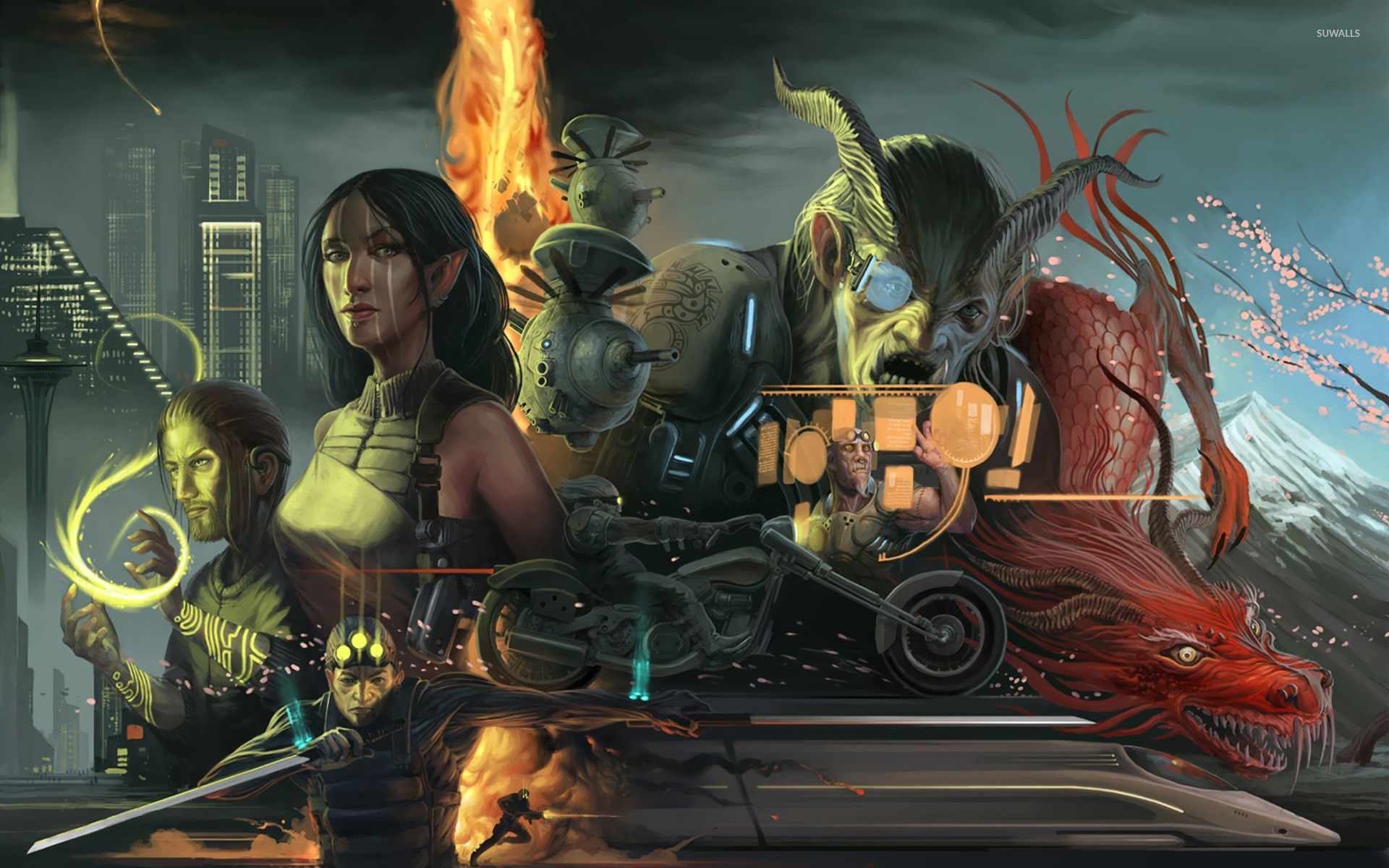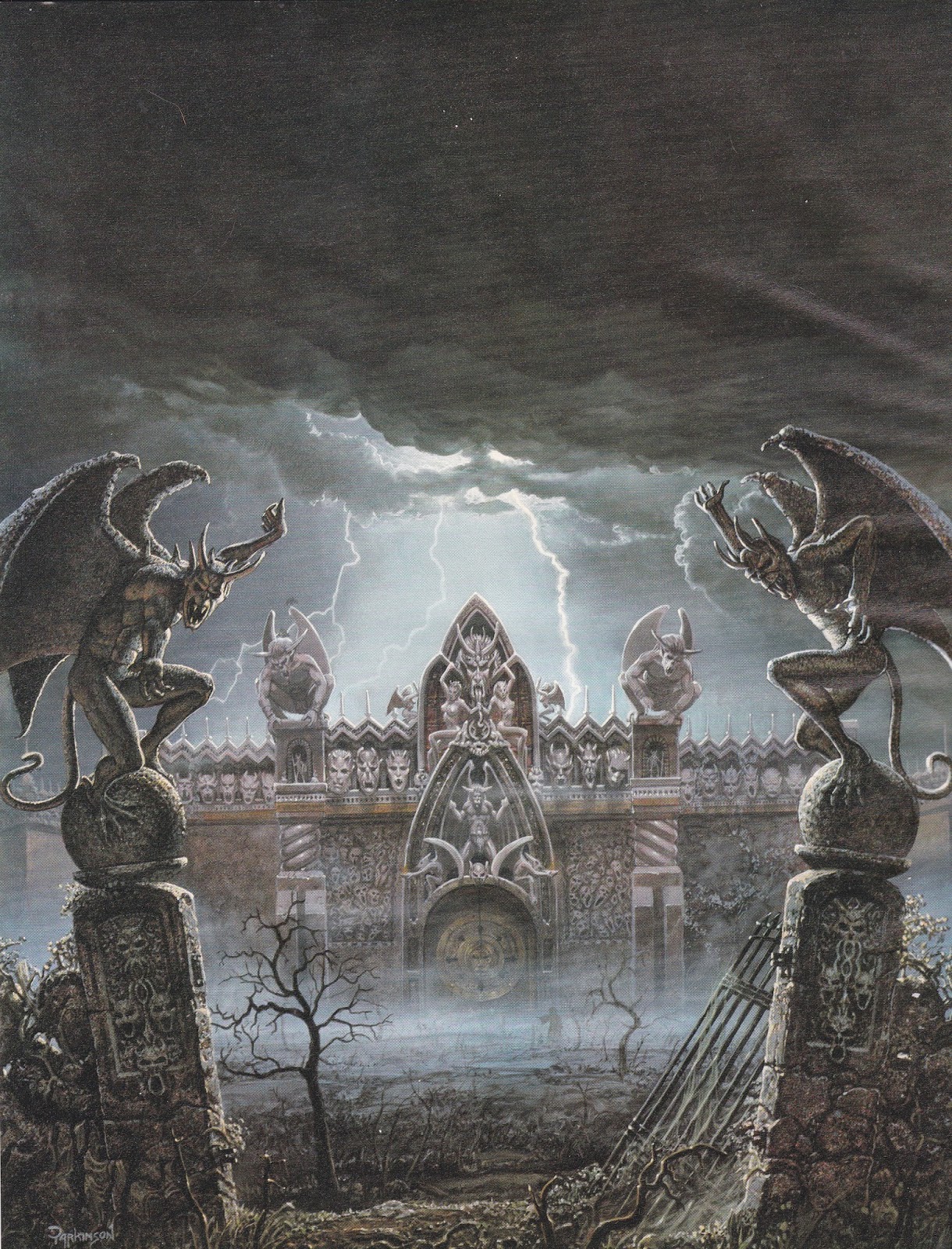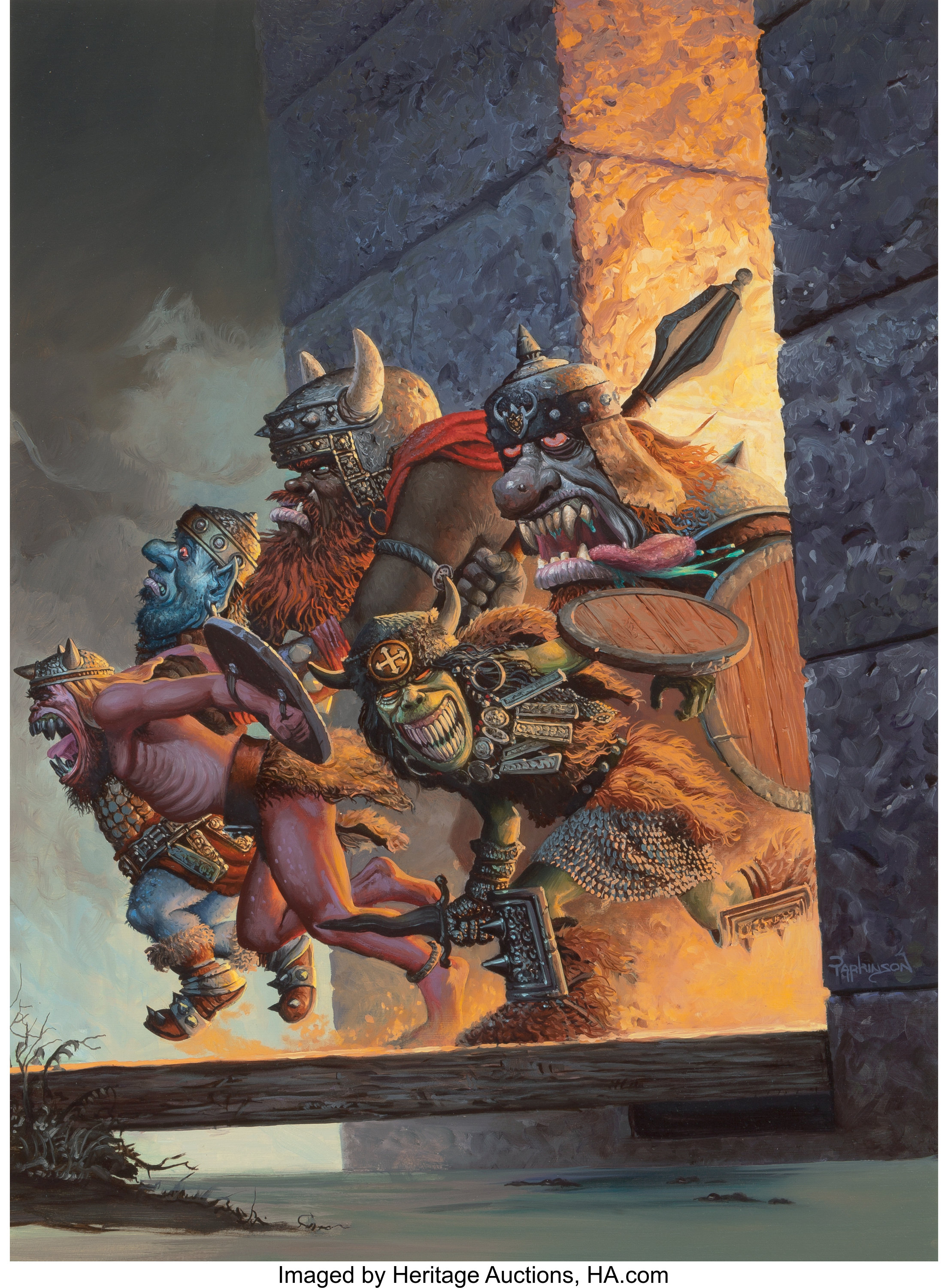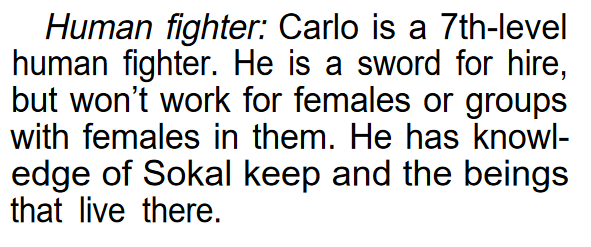I invite You to read and discuss. And if You have Your own "twisted gods", please share them.
In RPG and fantasy, we are often faced with a situation where the existence of gods is an empirically confirmed fact, rather than a matter of belief. Two extremes can be distinguished in the representation of these entities (note – I do not claim that all creation adopts one of these two extreme points of view). On the one hand – the trend adapted by e.g. most of the settings for D&D – gods are personification of certain values professed by people, not infrequently they are even „born” from the faith of mortals or at least derive power from it/are shaped by it – gods described as „good” are simply good in the conventional sense of the word, they sincerely care about their followers and you know what to expect from them. On the other side, we have motifs that can be considered taken from Lovecraft’s Cthulhu mythology – the gods are incomprehensible, distant beings, completely unconcerned with human worldviews and so-called „good and evil”, mostly indifferent to humanity (and if by chance their paths intersect with humanit’s ones, humanity is screwed) – at the same time, it is not uncommon for most mortals to be unaware of their existence, instead worshipping imaginary, more anthropomorphic deities tailored to their emotional needs.
In this article, I wanted to present deities standing somewhere in the middle – entities whose goals, yes, are not fully understood by mortals, but nevertheless close enough to human morality that worshippers can find some commonality (real or imaginary) with their patrons. These gods are usually directly interested in some way in the lives of their worshipers – although not necessarily in the way those worshipers would like. At the same time, I wanted each description to contain a hook, an important point where the devotees’ understanding of the deity diverges from its real nature – and whose discovery could be a significant twist.
- Mother of Peace
The Religion of the Mother of Peace, or the Cult of Harmony, is a strictly pacifist religion. Strictly and absolutely. No violence is allowed, ever, anywhere, in any situation. If you see a psychopath murdering children with an axe, you have no right to use force to prevent him from doing so. You cannot stun him, disarm him, knock him over, or even grab his arm. At most, you can ask him to stop, try to distract him, or stand up to the blow to give the children a chance to escape. Why do people follow such religion? First, the philosophy appeals to some – in the real world, Gandhi said something like „applying the eye-for-an-eye principle will make everyone blind.” – Followers of Harmony believe that violence begets violence, while peace begets peace. If they consistently turn the other cheek and don’t resist evil, they will stop winding up the spiral of violence and constant revenge and eventually evil will disappear naturally. Second – following the path of Harmony brings concrete benefits. Holy priests, who have long been non-violent, receive healing powers from the Mother of Peace – but they only work on other followers, so the policy of „I do violence, and the pacifist priest of Harmony heals me” is impossible. To use healing, you need to sincerely renounce violence – which, on the one hand, reduces your chances of survival in an encounter with hostile beings, on the other – if you come out of it alive, all your wounds will be healed, plus you gain protection from natural diseases and other threats. Third – the priests of Harmony preach that those who live and die, observing the principle of non-violence, will be taken into the bosom of the Mother of Peace after death, who will give them happiness incomparable to earthly suffering – so it is „profitable” to trade your life in exchange for heavenly pleasures.
The religion of the Mother of Peace may be perceived differently in society. It is possible that the authorities are avtively against it – it makes the subjects unwilling to fight, which reflects on the combat power of the state. Or perhaps they support it, seeing it as a tool to pacify potential rebels? Ordinary people may regard the Children of Peace as annoying lunatics – or treat them with deep respect. Even if healing powers may not work on „infidels,” after all, the Children may be able to help them in other ways – such as using conventional medicine (while remarking „Join us and you’ll see real miracles!”).
Well, what is the catch? Yes, the Mother of Peace actually exists. But her goal is by no means to create a utopia where people can live in happiness and peace. Her goal is to weaken the population of a given world/planet/country. When a sufficient portion of the population is transformed into followers of Harmony, for whom the use of violence – even for defense – is unthinkable, and even if it were thinkable, they would became too weak to use it, the time for reaping comes. The True Children of the Mother, hordes of bloodthirsty, voracious creatures, come out to prey and consume the pacified people. The devoured people continue to make prayers to the Mother, who continues to appear from time to time, assuring her followers that this is the final test and whoever perseveres without putting up a fight against the monstrous invaders will be saved.
During the course of the game, players may encounter followers of Harmony. It would be good for the GM to present them as something more than detached hippies, to make the players start to wonder if they are right. Maybe they’ll come across a reformed bad guy – e.g., a psychopathic follower of the god of murder who massacred a village of Harmonious heretics, but their indomitable will and serenity in the face of death made him convert and join them? Or more life-like – a husband who stopped beating his wife and children and is now an exemplary head of the family? Players can act as defenders of persecuted Harmonists (although this will involve some ambiguity – „Harmonists are decent people, but without people like us, who are not afraid to get their hands dirty, thay would survive”). They can have discussions with the priests about the legitimacy of pacifism. Maybe one of the player characters will start thinking about becoming a Harmonist after his career as an adventurer ends? The more sympathetic players become to the cult of Harmony, the more shocked they will be to discover indications that the Mother of Peace may be a much darker entity than it appears. At first, they may trivialize rumors like „Harmonists are actually a fifth column preparing the world for an invasion by dark forces!” as typical denigration of the new religion by the old clerical establishment. But as time goes by, the evidence will become stronger and stronger… Until finally there will be an invasion of the True Children that the players will have to face. Or maybe they will have the chance to prevent it, and will face the dilemma „Whether to believe the critics of the Harmonists and obstruct the great ritual, which, according to the Harmonists, is supposed to help bring universal happiness, but in fact open the gates of the dark dimensions…. Given that in order to do so, we will have to massacre a crowd of unarmed civilians, including women and children?”
The Mother of Peace is portrayed by her followers as a goddess with, one can easily guess, maternal qualities. Perhaps even as a pregnant woman? This is a play on the ambiguous nature of this entity – the presumed spiritual mother-protector of the followers of Harmony, and the actual fecundator of the swarm that will consume them. Players may come across disturbing references to „the coming of the True Mother’s Children” in sermons and hymns – priests may (sincerely or not) explain that it’s such a metaphor, that it’s about the era when people truly dedicated to peace will come.
- Enemy of Superstition, Destroyer of Magic, Defender of Normalcy
There are many arguments that are made against magic. It is source of obscurantism, superstition and charlatanism, a way to fool people. It violates the natural order of things. It is the work of demons, leading to possession or by destroying the veil of the worlds to demonic invasion. It is the theft of the power due to the gods, a manifestation of human pride. It distracts people from giving honor due to these gods. It brings madness, sucks the life out of the environment, causes the risk of explosions or other side effects. Leads to inequality, as mages can exalt themselves over ordinary people. Or something.
Depending on the setting, each of these accusations may or may not be true. But that doesn’t stop the Defender cult from preaching them. Inquisitors and witch hunters roam the world, collecting magical artifacts, books and even arresting anyone who manifests magical talents. No, they don’t burn them at the stake. All items and people associated with magic go to the Bottomless Wells located in temples – supposedly the only way to effectively annihilate them. Importantly, the hunters are ordered to take mages alive if possible and throw them into the wells – supposedly a mage eliminated in the wrong way turns into a wraith, or something like that. Inquisitors are aided in this work by the magic-blocking powers provided by the Defender.
Witch hunters can be treated by the people as terrifying villains – or as heroes. The reason for the latter attitude is not necessarily solely propaganda and „fear of otherness.” It is possible that the land has actually suffered a lot at the hands of mages – perhaps it has just liberated itself from the rule of an evil sorcerer and his disciples, or it is fighting a fierce battle against a nation that uses magic in a fierce way. It would be worthwhile for players to see some of the negative effects of magic use with their own eyes, so that at the very least they would develop doubts about whether the Defender’s followers are wrong.
What is the truth? It’s easy to guess that the Defender is not concerned with defending the innocent from witchcraft. But neither is he driven by any other selfish yet high-minded motivations along the lines of „magic takes the glory away from the gods.” The truth is that for the „Defender,” magic is just darn tasty. Bottomless Wells are portals leading directly to his insatiable maw. It’s possible that the founder of the Inquisition managed by some miracle to communicate with this entity and make a pact „I will provide you with food, you will lend me and my disciples your anti-magic powers, which you use to safely digest objects radiating magic – and we will use them to incapacitate mages.”
What will happen when the players reveal the truth about the Defender? Maybe the inquisitors will be furious that their holy crusade turned out to be nothing more than feeding an inter-dimensional monster, they will turn their backs on their god, to which he will react with rage (not because of his violated dignity or some other irrelevant value, but because of the vision of being cut off from a steady supply of grub), through one of the wells he will enter the world and the players, along with the inquisitors, will have to face him? Or maybe the inquisitors will react with a shrug of the shoulders and the statement „So what if the Defender is not a noble god, but a voracious monster. Magic is still a threat, and he is the best means to eliminate it.” Perhaps, using the method of the cobbler Skuba (Polish legend), players will toss a special object emanating „toxic”‚ magic into one of the Wells, which will poison the Defender?
- Truthsayer
God of the truth, the whole truth and nothing but the truth. People swear by his name. He is also worshipped as the god of justice and knowledge, so judges and scholars worship him. Lying brings his curse.
The Truthsayer doesn’t lie about himself – in fact, he wouldn’t be able to even if he wanted to (and he definitely doesn’t want to). The problem is that the people themselves have sung too much about him. As I pointed out above – he is the god of truth and ONLY truth. Justice does not matter to him, it is a totally foreign concept to him…. If he helps the investigators uncover the machinations of the villains, it is only so that the truth will come out, but he does not care whether the result will be the administration of justice. He might as well help the villains discover the heroes’ forays and subterfuges. As for acquiring knowledge – yes, he assists scholars in their research, in order to reveal the truth. However, if a scholar spins unsubstantiated speculations and hypotheses (which happen to be contrary to the truth), even in good faith – he draws the wrath of the Truthsayer. Simply put, untruths make the Truthsayer suffer. This applies to any untruth. Also fantasy. If the Truthsayer’s followers perform a ritual to increase his presence in the material world, they will bring a terrible calamity. From now on, the curse will fall on actors and poets, on anyone who utters a harmless lie like „You don’t look fat in that clothes,” „I’m not mad at you,” or „I’m on my way out,” as well as anyone who uses deception (no, the Truthsayer doesn’t care about the nobility of the cause – if you put on camouflage to sneak under the headquarters of the bad guys and rescue their innocent hostages, you are a hideous LIAR and deserve to be punished). Bah, people in ordinary conversations must be careful not to use metaphors and phraseological compounds. A Truthsayer may even go so far as to seek to eliminate words like „nice,” „tasty” or „good” – after all, they are subjective, and what is not objective truth, is a LIE.
Good player characters can help prepare a ritual to summon the avatar of the Truthsayer – after all, „God of Truth” sounds like a decidedly good dude, right? At some stage, they may realize that the world of absolute truth will be something terrible (maybe some conversation with a philosopher?) and try to torpedo the ritual. Maybe they will be able to accomplish this in advance… Or maybe the avatar will already begin to pass into our world? Then they will succeed in playing him off by pointing out the paradox – people summoned him because they believed he was the avatar of goodness, justice and knowledge – if he exploits this ignorance of theirs, he will benefit from lying, and this would be unacceptable. Or a character with an exceptionally high bluffing skill or the like might try to spew a tale so full of lies and absurdities that the avatar of Truth will go berserk just from listening – but a half-hearted success will only enrage him!
For the Truthsayer, as an antithesis, I would see a god of lies and fantasy – not the typical sinister „Prince of Lies” in the style of the Christian Satan, or some malicious trickster, but a deity whose motto is „Such is the world! A wicked world! Why is there no other world?” (B. Lesmian) or „Be guided in life by such foma (harmless lying) as will give you courage, goodness, health and happiness” (K. Vonnegut), who lies not for some selfish purposes, but because he firmly believes that lying IS GOOD. The real world is cruel and unfair, lying helps to endure it and achieve at least a little happiness – through escapist fantasies, small daily lies „From tomorrow I will take charge of myself and achieve something!” „You look nice”, „Don’t worry, you’re not a failure at all” through big lies like „Good is always rewarded and evil is punished”. In this arrangement, both the god of lies and the god of truth would be morally neutral in practice (both can assist followers in certain situations, but at the same time pose a danger – the god of truth mercilessly punishes anything that is not the absolute truth, the god of lies can entangle you in a web of delusion) – but in theory, it is the liar who is driven by more altruistic motivations and loves mortals.
- Prince of Blades, Lord of Sharp Angles and Edges
Centuries ago, the Prince of Blades was worshipped as a deity of war, or even slaughter. Legends say that he made the claws of his worshippers – and even their teeth and nails – exceptionally sharp and dangerous to enemies. And the legend is true – albeit the Prince was never a god of war. He is the personification – or perhaps the source? – of all sharpness. He doesn’t care about crippling anyone, although that’s mostly a side effect, he just wants things to be sharp. Or rather – in passing, by his very existence, he makes them so?
Let’s say there is a place where strange phenomena occur. Babies are born with long and exceptionally sharp claws and fangs. Swords and axes made by local blacksmiths are famous for their exceptional sharpness (maybe the player characters just came here to get their hands on them?). Why go. There is a temple of the Prince underground, and its influence radiates to the surface. Cultists come to the town to unearth it – they believe in the Prince in his aspect of the god of war and believe that this will help them triumph over their enemies. When they realize their goal, they are met with a surprise. The cultists are transformed into living avatars of sharpness. Invisible blades cut them so as to eliminate all contortions (a head clipped to a cube is not a pleasant sight), their hands turn into scythes, and in their brains all thought of their own is replaced by a single imperative – cut! What’s more, the Prince’s influence is more and more visible in the neighborhood – everything becomes sharper. The most visible effect from a mechanical point of view is that all weapons (edged weapons to a slightly lesser extent, but also) deal more damage. But as the influence increases, even rubbing clothes against skin starts to be painful, then every touch hurts, until finally the very movements of air cut the skin. If players don’t close the temple, the effects can be really nasty. It is possible that earlier players encountered a strange artifact – a sponge ball. If they didn’t get rid of it, it will turn out to be a „statue” of Our Soft and Oblique Lady, the opposite of the Prince, which what him will mitigate the effects of opening the temple. The battle will take place not between good and evil, order and chaos, or other abstract constructs, but between Sharpness and Softness.
- Mistress of Natural Instinct
A goddess of wildlife, her followers preach the need to return to a life in harmony with nature and reject the defiling influence of civilization. Oh, it would seem – another „mother Gaia” with a pseudo-ecological cult. The thing is, the Lady is not at all measured by the fact that people are poisoning rivers and cutting down forests, as her followers believe. What she doesn’t like is that they are rational. Reason, consciousness, morality, are evolutionary dead ends. They only multiply pain and suffering. Do animals – much less plants – waste time and resources on some foolishness like art? Do they risk their lives and the lives of others for abstracts like honor? Do they suffer from offended dignity, boredom or lack of meaning in life? People simply combine too much to be happy. The return to nature is not primarily about rejecting technology (although that will probably be a side effect of it), but liberating people from the unnecessary baggage of excess thoughts. Let them become like animals – free, innocent and amoral. This is the purpose of the Lady, which is not grasped (possibly except by the high priests) by her followers. Yes, during ecstatic rituals some of them fall into a trance, during which they walk on all fours, howl and growl. And the priests are able to bring this trance on their enemies… But are the followers ready to accept the truth that, according to the will of their mistress, this is how life should be, forever?
Rest of the books is avalaible for free here: https://adeptus7.itch.io/twisted-gods
 s so I wanna try this campaign idea with a new group.
s so I wanna try this campaign idea with a new group.





